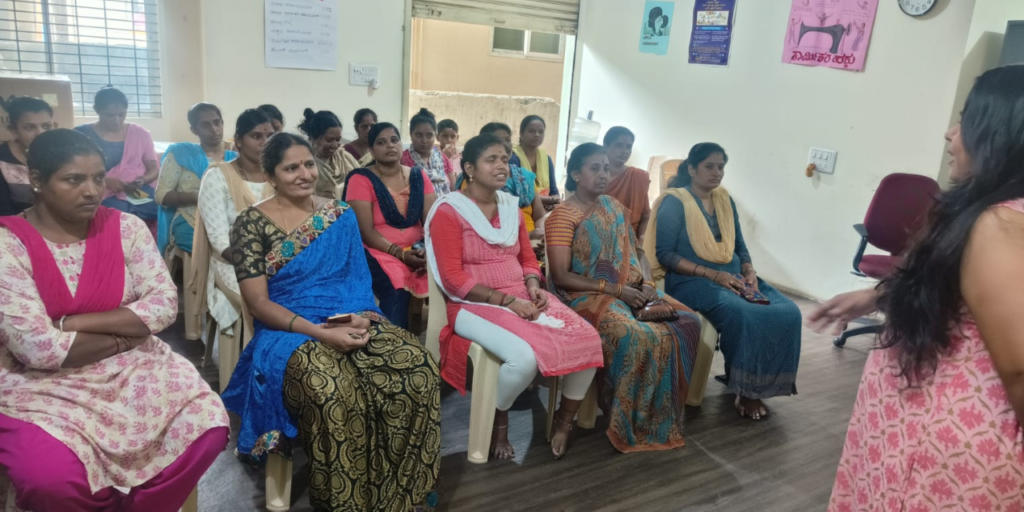A Glance Into The Lives Of Workers With Bite-Sized Stories From Factories, Homes & Communities.
In a series of inspiring initiatives, garment workers are taking charge of their well-being and working conditions. From learning stress-relief techniques to advocating for fair wages, these workers are demonstrating the power of collective action and empowerment.
Worker Education
Counting Backwards to Wellness: In a recent wellness session, Cividep’s partner organisation Munnade Social Organisation taught 22 garment workers a simple yet effective stress-relief technique: backward counting. Workers were encouraged to count down slowly from 50 to 0 to ease anxiety and refocus. The session covered ergonomic exercises to prevent back and shoulder pain caused by long hours of repetitive work. Participants also learned simple yoga poses for daily practice and were reminded about the importance of spending time with loved ones and using meditation to handle stress – crucial practices often missing from workers’ lives.
Worker-Centric Research
What’s SWELL?: Cividep had launched the SWELL (Systemic Wellness and Empowerment for Labour) Project, aimed at enhancing the health and well-being of garment women workers. Partnering with Co-Impact, the team will tackle gaps in healthcare services, particularly within the ESIS (Employee State Insurance Scheme). The strategy includes comprehensive research, policy analysis, and active advocacy to build a more supportive system. After insightful meetings in Bengaluru, the team is gearing up for a new round in Tamil Nadu this September to refine its approach and drive meaningful change.
Worker Support
Workers Lead the Way on Wage Discrimination: At a prominent garment factory, a worker leader successfully negotiated with management to address wage discrimination, resulting in a review of payment slips — a crucial step towards fair pay. This success followed three meetings conducted by the Garment Labour Union (GLU) with external factory committees, focusing on issues such as production-related harassment, excessive overtime work, and salary discrimination. GLU, a partner organisation, advised workers to push for overtime pay rather than compensatory leave and to raise salary concerns directly with management. These efforts underscore how worker representation and collective action can lead to tangible improvements in the garment sector.
Fair Wages Won: Recently, workers hired to load 25 tons at an Indian company’s factory in Ambattur Industrial Estate found themselves asked to handle 50 tons — without extra pay. Feeling exploited, they turned to labour helpline India Labourline’s Tamil Nadu chapter, run by a Cividep team. After hearing their complaint, the team stepped in, facilitating mediation between the workers and management. Following negotiations, the company agreed to pay wages for the full 50 tons of work. The workers resumed their duties only after securing this agreement, ensuring they received the compensation they deserved for their labour.
(Updates: Kaliyaperumal Narayanan, Preethi Gowda, Nandita Shivakumar)
